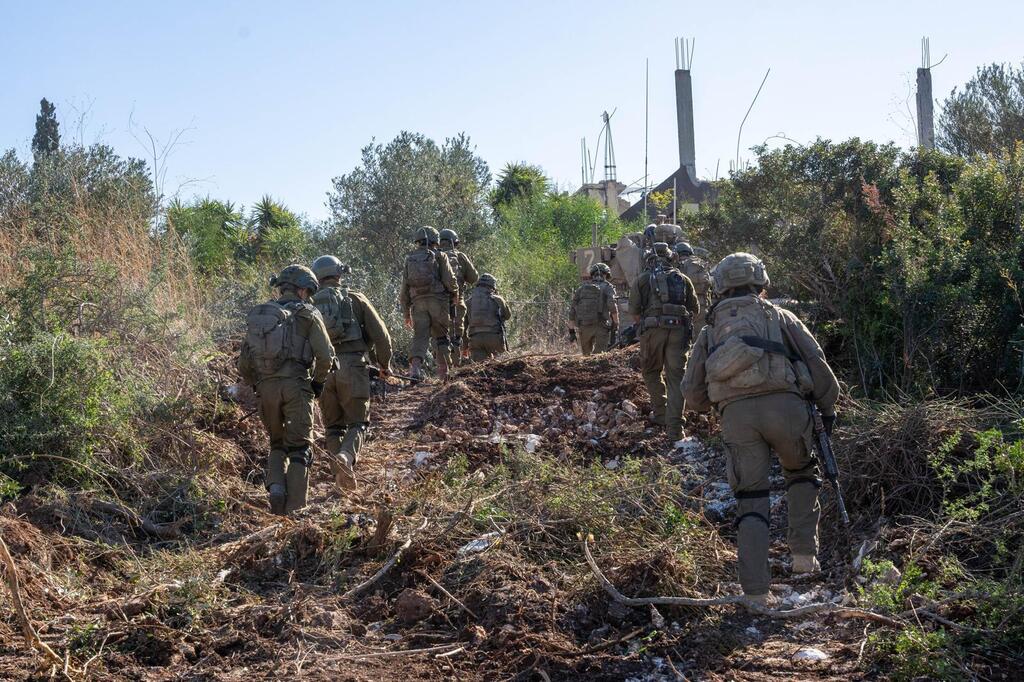Getting your Trinity Audio player ready...
Lebanese network Al-Akhbar, closely aligned with Hezbollah, reported on Saturday morning that concerns over the fragility of the cease-fire are growing as it enters its second month, citing Israeli military activities in border villages as a potential tipping point.
Serving as a mouthpiece for the Lebanese militant group, the network stated that while Hezbollah remains committed to the cease-fire, it has begun signaling that it will not hesitate to act on Lebanon’s "right to self-defense" as stipulated in the agreement. According to Al-Akhbar, Hezbollah has warned that if Lebanon’s official security forces fail to curb what it describes as Israeli "attacks," the group will intervene directly.
A drone belonging to the 226th Brigade in action
(Video: IDF Spokesperson's Unit)
Hezbollah’s representative in the Lebanese parliament, Hassan Fadlallah, accused Israel of exploiting the cease-fire to implement plans for destruction and aggression in the border villages. He placed responsibility on the Lebanese state, the international monitoring committee established after the cease-fire, UNIFIL, the Lebanese Army, and the various countries involved in the agreement.
“We, the people of southern Lebanon, the resistance, Hezbollah’s supporters across Dahieh and the Bekaa, have never needed proof that resistance is a national necessity,” Fadlallah declared.
In a morning editorial, Al-Akhbar’s editor, Ibrahim Al-Amin, argued for the necessity of resisting what he called Israeli violations. He claimed that a loophole in the cease-fire allows Israel to act with impunity while the monitoring forces lack the authority to stop its actions in border areas. Al-Amin further alleged that while the Lebanese Army has expressed concern to the Americans over Israel’s actions, the U.S. has dismissed these complaints. Lebanese Prime Minister Najib Mikati reportedly told the U.S. that Israeli operations threatened the agreement but received no meaningful response. Similarly, Lebanese Parliament Speaker Nabih Berri conveyed concerns to Washington, warning Israel’s actions could legitimize military responses from Hezbollah.
According to Al-Amin, Israel has destroyed twice as much in border villages over the past month as it did during 14 months of prior conflict, preventing residents from returning to their homes and restricting ambulance and civil defense teams from recovering bodies. He asserted that Israel’s actions are restoring the legitimacy of resistance, whether by Hezbollah or other groups, adding that while people are weary of war, the cost of confrontation with Israeli forces would be less than the cost of continued Israeli actions.
IDF operations continue across the border
Hezbollah’s grievances arise from the fact that, despite the cease-fire, IDF has continued ground operations aimed at clearing southern Lebanese villages of terrorist infrastructure. IDF announced on Friday that the 226th Brigade, under the command of the 146th Division, remains active in the area while adhering to the understandings reached between Israel and Lebanon.
Forces are currently operating in the westernmost village of Al-Naqoura, where dozens of Hezbollah terror infrastructures used for attacks against Israel have been uncovered. Troops discovered military equipment and weapons stored in civilian buildings, including a building disguised as a pharmacy that contained explosives, RPG missiles, and AK-47s. Additional finds included rockets, mortars, and launchers aimed at Israeli territory, as well as a truck carrying 40 rocket tubes. All the equipment was confiscated and destroyed.
2 View gallery


Areas in red where residents are not yet allowed to return
(Photo: IDF Spokesperson's Unit)
Al-Akhbar regularly reports on Israeli operations in southern Lebanon, where, under the cease-fire agreement, armed forces not officially affiliated with Lebanon’s military are not permitted to operate. Nonetheless, IDF continues to identify and target terror-related sites in the region, with occasional airstrikes resulting in casualties. Recent strikes have targeted rocket launchers, significant weapons caches, smuggling routes, and armed militants.
A delicate agreement on shaky ground
Hezbollah has largely refrained from responding to Israeli strikes since the cease-fire, with the exception of one mortar attack on Mount Dov earlier this month. The group suffered significant losses during the conflict, particularly in its final months, which included the elimination of senior leadership and IDF ground maneuvers in southern Lebanon. While IDF operations have continued post-cease-fire, their intensity has decreased substantially, likely contributing to Hezbollah’s apparent interest in preserving the current status quo to avoid reigniting the conflict.
Get the Ynetnews app on your smartphone: Google Play: https://bit.ly/4eJ37pE | Apple App Store: https://bit.ly/3ZL7iNv
The Lebanese Army, now deployed in villages across southern Lebanon, claims to have dismantled terrorist infrastructure in recent days. Meanwhile, IDF remains in border areas, actively targeting Hezbollah operatives who violate the cease-fire. In the past month alone, over 40 Hezbollah operatives have reportedly been killed, adding to the approximately 3,000 militants killed and 7,000 wounded over the past year—roughly a third of Hezbollah’s estimated 30,000 combatants.
In areas where the Lebanese Army has established control, IDF has withdrawn back to Israeli territory. However, Israeli forces continue engineering operations to destroy Hezbollah bunkers and internal combat tunnels. IDF clarified this week that the initial 60-day cease-fire period is not a "sacred deadline" and that implementation of the agreement’s stages will proceed gradually under U.S. oversight. For the first time, the United States is leading the enforcement mechanism for the cease-fire, described as operating under an "American umbrella."
The fragile cease-fire remains precariously balanced, with both sides closely monitoring each other’s actions. While Hezbollah appears to be avoiding direct confrontation, its rhetoric and warnings suggest that any perceived overreach by Israel could risk pulling the region back into conflict.






